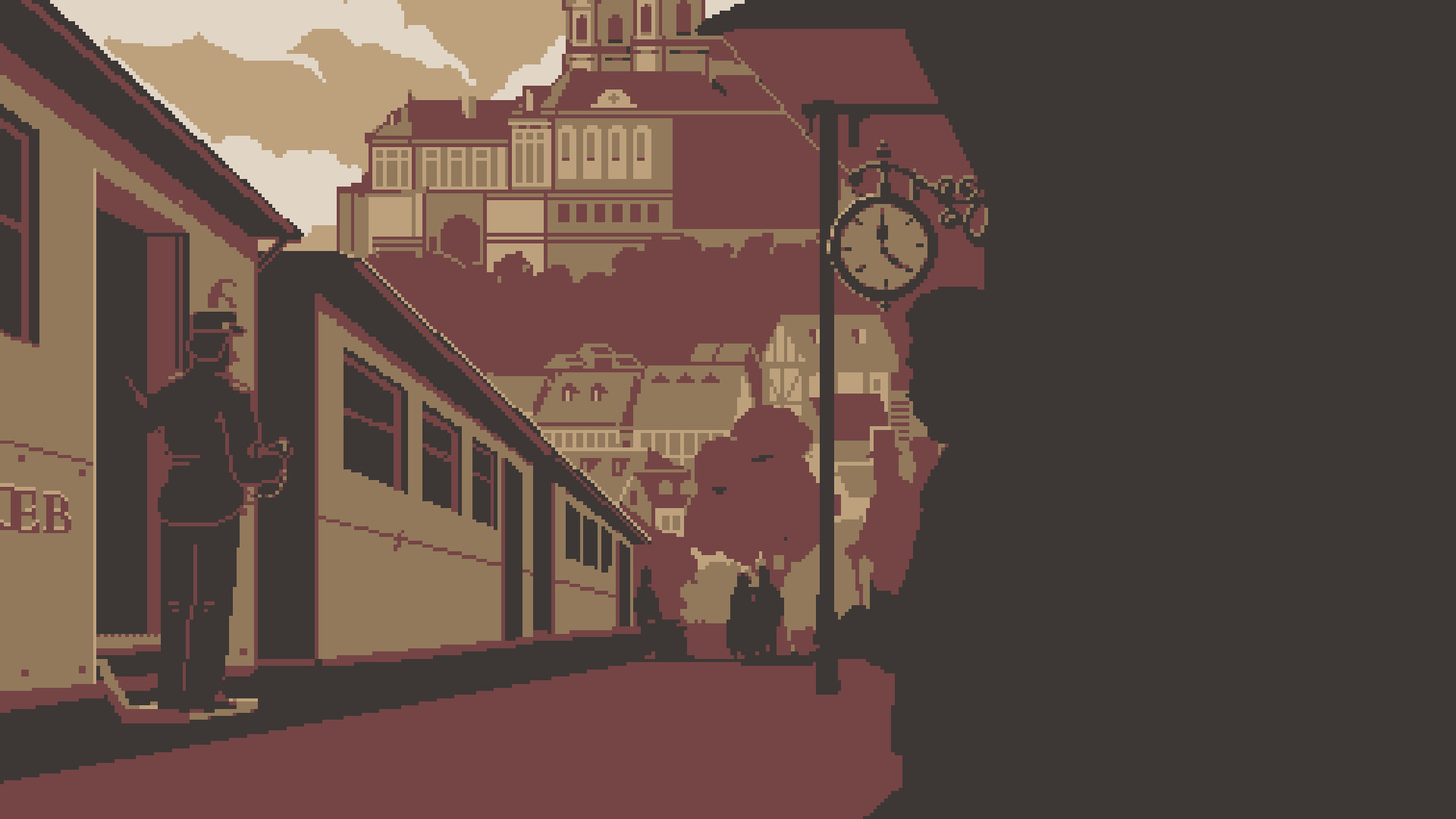The Lion’s Song Nintendo Switch review
A thoughtful and sensitive stroll through 20th Century Vienna.

Most writers can attest to the fickle and frustrating nature of inspiration. One minute the perfect description is drifting in front of your eyes, and the next – ah, gone. Before you know you’ve described the artstyle as atmospheric more than is advisable and still you haven’t made so much as a peep about what actually happens in the game.
The characters of narrative point-and-click game The Lion’s Song, although not games journalists, know all about the internal struggle that is creative ambition. Originally published in 2016 on the PC, it’s about to get the Nintendo Switch treatment, and I can’t think of a game more deserving of it.

Divided into four episodes, The Lion’s Song provides a brief window into the lives of four creative individuals, all of which are struggling to realise their respective visions in the cobbled streets of 20thcentury Austria. Encased within a beautiful sepia-toned art style, each chapter twists and turns according to the player’s dialogue choices. These choices go on to shape the plot of the later episodes, as the stories of these characters overlap and intermingle in their shared world.
The first chapter spirits us off to Wilma, a composer anxious about fulfilling her potential both musically and romantically. Unfortunately for the opening gambit, this chapter is painted with the broadest of brush strokes, but it is a gentle opening to the deeper issues seen in later chapters.
Wilma is under pressure to compose her best work in time for an important concert and so sets off to an empty cabin, owned by her mentor Arthur. The cabin is meant to be an escape from the noise of busy Vienna, but still her mind becomes convoluted with the noises of the surrounding cabin and the fantasies of a possible romantic life with Arthur. Even in the middle of nowhere, life finds a way to distract her.

In what will become a theme across all four episodes, this first chapter is a lesson in more than just musical creation, centring too on the struggle of overcoming personal daemons. The player must work with Wilma’s dialogue cues to attempt to turn her distractions into inspiration, while bleary dream sequences hint at what is really going on.
The noises of the cabin roof, storm raging outside and snuffling lantern give an authentic sense of the environment. Yet, considering the episode focuses so singularly on the difficulties of composition, the excerpts of the final ‘lion’s song’ are disappointingly limited. The small snippets we hear are cut off all too soon, dismantling the sense of swelling success into a more disjointed effort. However, where our adventure in music falls a little flat, chapters two and three dance with far more intriguing detail.
Both chapters, the first of which focuses on a painter and the second a mathematician, amplify the themes touched on in the first chapter, providing visualisations for the character’s creative processes that involve the player.

This is particularly well done in chapter two, turning our focus to the painter Franz Markert. Attempting to break his way into a prestigious artistic circle, Markert is knocked sideways by a cutting critique of his earlier work. From here he learns that he must work with his subjects as well as his own intuition to bring his visions to life, peeling back the layers of each subject’s psyche. This doesn’t come without a price, as the deeper he sees of other’s inner workings, the more obvious his limited understanding of himself becomes.
The practice of teasing out each character’s layers through careful dialogue choices feels really inspired. Every piece of information a character tells could inform later on a layer to be uncovered. Pick the wrong dialogue options and you’re stuck seeing only half of what makes them tick, plagued just by the Lieutenant’s arrogance or the Actress’s vanity.
In these scenes The Lion’s Song’s re-playability really comes through, and with a mechanic at the end of each episode that lets you return to specific decisions, it’s tempted me to play it all again.

However, by far the most ambitious and successful story in this series is Emma Recniczek, the mathematician. Barred from entry into an influential group of mathematical thinkers, The Radius, because of her gender, Emma has more than just her own mind to struggle against. The proceeding exploration into gender, friendship and maths is by far the most emotive journey. Emma’s thoughtful pondering on the trajectory of other’s lives is absolutely not to be missed.
The closing chapter is in many ways more of a ‘where are they now’ segment than a narrative in its own right, but still it manages to set these stories against their historical context with artful sensitivity. The Lion’s Song chooses to give precedent to individual experience rather than the accumulative effect of WW1, and it is all the more impactful for it.

The Lion’s Song adds its name to the list of wonderful indies moving onto the Nintendo Switch. The artistic detailed of these characters is even brighter when held in your hands. Through these stories, the lion’s song comes to symbolise more than just the name of Wilma’s final composition, but the song of inspiration itself. Whether that be a sense of hope, a connection with the self or a triumph over prejudice, ‘the lion’s song’ most of all seems to be about kindness. And hey, look – I didn’t use the word ‘atmospheric’ even once.

